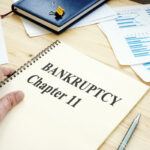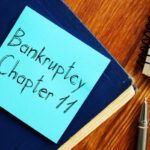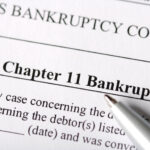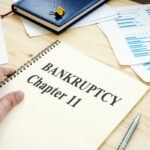Blog
Recent Blog Posts
The Bankruptcy Trustee’s Power to Set Aside Certain Payments to Creditors
Debtors planning on bankruptcy often make payments to certain creditors weeks or months ahead of filing. When a debtor makes a payment that unfairly benefits one creditor over others, this is known as an avoidable preference. Whether the payment is made voluntarily (by writing a check to a creditor) or involuntarily (through wage garnishment), the […]
How Much Control Does a Chapter 11 Debtor Retain Over the Business?
Under Chapter 11 of the Bankruptcy Code, company owners, referred to as debtors in possession (DIP), are allowed to continue business operations, but the bankruptcy court retains control over significant business decisions. This balance allows the business to maintain some autonomy while ensuring that creditors’ interests are protected. The following aspects of the business are […]
Fending Off Creditors’ Challenges in Bankruptcy Adversary Proceedings
An adversary proceeding in bankruptcy is essentially a lawsuit within the context of a bankruptcy case. It is initiated by a creditor or another party who seeks to challenge certain aspects of the bankruptcy or to resolve disputes that arise within the bankruptcy process. These proceedings can significantly affect the debtor’s ability to obtain a […]
Benefits of Conducting a 363 Sale of Assets in a Chapter 11
A debtor-in-possession (DIP) in a Chapter 11 bankruptcy proceeding can seek court approval to sell some or all of the company’s assets at auction through a process known as a 363 sale. Named after Section 363 of the U.S. Bankruptcy Code, it facilitates the efficient liquidation of assets, often resulting in higher recovery values and […]
Getting the Most Out of the Automatic Stay in a Chapter 11 Bankruptcy
When a bankruptcy petition is filed, an automatic stay immediately goes into effect, giving debtors a reprieve from most collection activities. This is in effect a court order that halts lawsuits, garnishments, and all forms of creditor harassment, allowing the debtor breathing room to reorganize their financial affairs. In a Chapter 11 case, the stay […]
Is a Prepackaged Chapter 11 Right for Your Situation?
Prepackaged Chapter 11 bankruptcies, often referred to as “prepacks,” are a streamlined form of bankruptcy reorganization. Unlike traditional Chapter 11 proceedings, which can involve extensive negotiations and court hearings, prepackaged bankruptcies allows a company to negotiate the terms of a reorganization plan with creditors in advance. If the required majority of creditors approve the plan, […]
What Are the Basic Tests of Eligibility for Subchapter V Reorganization?
Subchapter V of the U.S. Bankruptcy Code represents a streamlined, more cost-effective option for small business debtors seeking protection from creditors while reorganizing debt. Introduced as part of the Small Business Reorganization Act of 2019, it simplified the reorganization process with the intent of reducing the complexities and expenses typically associated with Chapter 11 filings. […]
Understanding the Absolute Priority Rule and Its Exceptions
The absolute priority rule, as set forth in Section 1129(b)(2) of the U.S. Bankruptcy Code,., is integral to a Chapter 11 reorganization plan getting confirmed by the court. The plan must adhere strictly to a hierarchical system of claim priority, which dictates the sequence in which creditors are paid. The rule is meant ensure fairness […]
How Does an Adversary Proceeding Differ from a Contested Bankruptcy?
In the course of a bankruptcy, significant disputes can arise that lead to litigation in one of two forms: adversary proceedings or contested matters. Whether initiated by a creditor, the trustee or the debtor, they can affect in large part the outcome of the bankruptcy case. Although there are similarities between them, they are governed […]
Deciding Whether Chapter 11 Is Right for Your Business
In the face of financial distress, businesses can find themselves weighing the options available to address their operational challenges. Among these options, Chapter 11 bankruptcy stands out as a potential avenue for businesses to restructure their debts and reorganize their operations. This form of relief offers advantages but also involves complexities that necessitate careful consideration. […]











